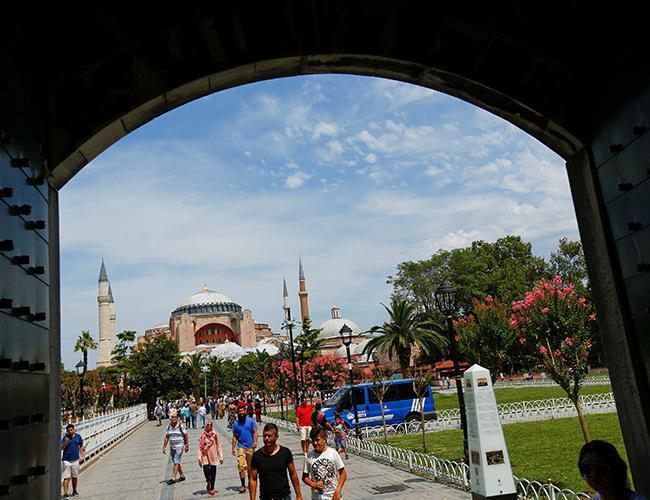Turkey’s tourism earnings to reach $30 billion in 2018: Minister
LONDON - Reuters

Turkey’s crucial tourism sector should see revenues grow to $30 billion in 2018, helped by planned new incentives for tour operators and rising visitor numbers, the country’s tourism minister, Numan Kurtulmuş, said on Nov. 8.
Increased security fears following an attempted coup and a series of bomb attacks slashed Turkey’s tourism revenues in 2016 to $22.11 billion from $31.46 billion in 2015.
But numbers turned around in April, thanks to a surge in Russian tourists following an improvement in relations between Moscow and Ankara.
Data for the third quarter of 2017 showed a rebound of nearly 40 percent year-on-year.
“We are expecting 31.4 million visitors this year, and from that, revenue of $26 billion,” Kurtulmuş told Reuters during a visit to London. In 2018, this would rise to 37 million to 38 million visitors, generating revenue of $30 billion, he said.
Turkey’s finance ministry in October predicted that tourism would generate $20 billion of revenue in 2017.
Tourism has generated significant revenue for the $860 billion economy, which straddles Europe and Asia. In 2016, the government launched a plan to bolster the beleaguered sector.
Kurtulmuş said the cabinet was expected to sign off later this month on proposed new incentives to tour operators, offering them as much as $9,000 for every planeload of tourists they brought to the country, depending on the season.
Turkey also hopes to become a greater health and sports tourism destination, he said, and to revive cruise travel, which suffered after concern over security led a number of operators to cancel trips in recent years.
“We are working with other countries around the Mediterranean to come up with packages, to attract Westerners, especially visitors from the U.S.,” he said. “We are talking to Greece and others.”
Turkey is also trying to attract visitors from Asia to broaden its appeal beyond its usual markets in Europe.
“We are trying to open the doors of Far East countries - namely China, India, Japan, Korea, Indonesia and Malaysia,” Kurtulmuş said.
“They also have new real middle classes, especially China and India.”
















